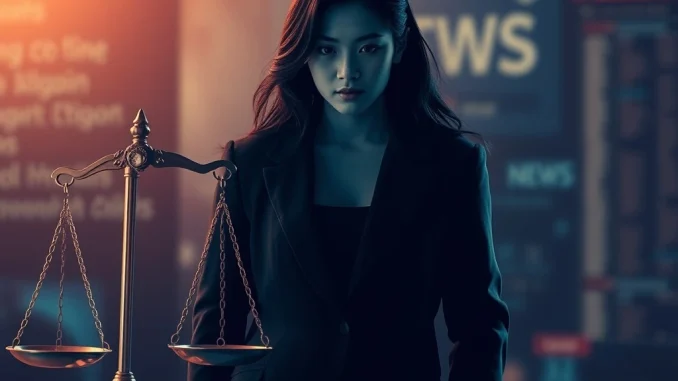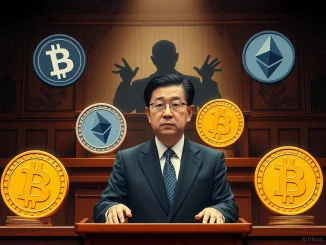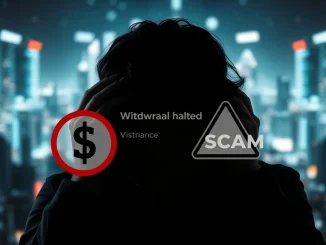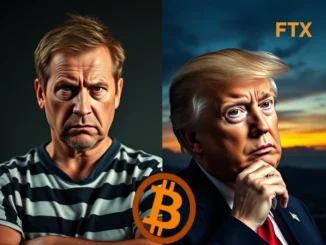
The glitz and glamour of K-pop rarely intersect with the complex world of cryptocurrency fraud, but a high-profile case involving former Kara member Park Gyuri is proving otherwise. As legal proceedings against her ex-boyfriend, Song Ja-ho, intensify, new accusations of K-pop crypto fraud have emerged, casting a shadow over the star’s career and highlighting the inherent risks for celebrities dabbling in digital assets.
Unraveling the Park Gyuri Controversy
Former K-pop sensation Park Gyuri, known for her time with the iconic girl group Kara, finds herself at the center of a deepening legal storm. The case, which initially focused on her ex-boyfriend, Song Ja-ho, now includes fresh allegations against Park concerning her involvement with Pica Coin, an art-themed altcoin project. While Park has consistently denied direct wrongdoing, her recent court admission to selling personal Bitcoin holdings in 2021 to invest in Pica Coin has added new layers to the narrative. She claimed she saw Pica Coin as a legitimate art-technology startup and subsequently lost her investment when the token was delisted from Upbit in June 2021.
The Pica Coin Saga: What Went Wrong?
At the heart of this unfolding drama is Pica Coin, an altcoin project now under intense scrutiny. Song Ja-ho, Park Gyuri’s ex-boyfriend, faces accusations of fraud and breach of trust related to the project. The Pica Coin CEO, Seong Hae-joong, has openly contradicted Park’s account, alleging that she received 60 million won (approximately $43,566 at the time) in cash from Song as compensation, months after their reported breakup. This conflicting testimony complicates Park’s defense, which hinges on her assertion that she was unaware of any illicit nature of the project. Her former role as Pica Coin’s Chief Communications Officer and Advisor further blurs the lines, making it challenging to entirely separate her from the project’s operations.
Navigating Celebrity Crypto Ventures: Risks and Reputations
The celebrity crypto landscape is fraught with potential pitfalls, and Park Gyuri’s case serves as a stark reminder. When public figures endorse or invest in volatile digital assets, their reputation and financial well-being become intrinsically linked. This incident underscores the critical importance of due diligence, not just for investors, but especially for celebrities whose associations can lend undue credibility to projects. The scrutiny Park now faces, despite her denials, illustrates how quickly public perception can shift when personal relationships intertwine with questionable business partnerships. This case isn’t isolated; numerous celebrities globally have faced backlash or legal issues for their involvement in cryptocurrency projects that later proved problematic.
Broader Implications for Crypto Legal Cases
Beyond the immediate individuals involved, this ongoing trial has significant implications for future crypto legal cases. Prosecutors accuse Song of manipulating Pica Coin’s price and defrauding investors, charges he has not explicitly denied. If verified, the alleged compensation to Park could suggest a more active role on her part than she has admitted, potentially influencing how courts view the liability of non-technical stakeholders in altcoin projects. The case highlights the inherent difficulties in proving intent within the opaque and rapidly evolving crypto market, where the line between genuine investment and speculative fraud can often be blurry. Regulatory bodies worldwide are increasingly scrutinizing celebrity endorsements and investments in token projects, particularly those with low market capitalizations, pushing for greater transparency and accountability.
A Cautionary Tale for Altcoin Fraud
The delisting of Pica Coin from Upbit and the subsequent legal fallout serve as a potent cautionary tale regarding altcoin fraud and unregulated ventures. For everyday investors, this case reinforces the absolute necessity of conducting thorough research before committing funds to any cryptocurrency project, especially those promoted by high-profile individuals. Transparency in project development, clear communication from leadership, and verifiable financial disclosures are paramount. The outcome of Song’s trial and any subsequent legal actions against Park will undoubtedly set precedents for how similar cases are handled, particularly in jurisdictions where the intersection of celebrity influence and financial accountability is under increasing examination. This incident underscores that even seemingly legitimate projects can harbor underlying issues, making investor vigilance more crucial than ever.
As the trial progresses, the distinction between Park Gyuri’s stated intentions and the mounting evidence against her remains a central point of contention. Her legal entanglements, while personal, undeniably impact the public image of the reformed Kara group. For the broader crypto community, this case is a pivotal moment, offering insights into evolving regulatory enforcement and the complex liabilities faced by all parties involved in digital asset projects. It’s a powerful reminder that in the fast-paced world of cryptocurrency, vigilance, due diligence, and clear ethical boundaries are indispensable for both celebrities and everyday investors alike.
Frequently Asked Questions (FAQs)
Q1: What are the main accusations against K-pop star Park Gyuri?
A1: Park Gyuri, a former member of Kara, is facing new accusations related to her involvement with Pica Coin, an art-themed altcoin project. While she claims to have lost her investment after the coin was delisted, Pica Coin’s CEO alleges she received a significant cash payment from her ex-boyfriend, Song Ja-ho, who is accused of fraud and breach of trust concerning the project.
Q2: Who is Song Ja-ho and what is his role in the Pica Coin case?
A2: Song Ja-ho is Park Gyuri’s ex-boyfriend and the central figure in the Pica Coin fraud case. He is accused by prosecutors of manipulating Pica Coin’s price and defrauding investors. His ongoing trial is where the new allegations against Park Gyuri have emerged.
Q3: What is Pica Coin and why was it delisted?
A3: Pica Coin was an art-themed altcoin project. It was delisted from the Upbit exchange in June 2021. The delisting, combined with the subsequent legal fallout and fraud accusations against Song Ja-ho, reflects the inherent risks and potential for misconduct in unregulated or opaque altcoin ventures.
Q4: What are the risks for celebrities involved in cryptocurrency projects?
A4: Celebrities face significant legal and reputational risks when involved in cryptocurrency ventures. Their endorsements or investments can be perceived as lending credibility, and if a project proves fraudulent or unstable, they can face amplified consequences, public backlash, and legal scrutiny, regardless of their direct involvement in any illicit activities.
Q5: How does Park Gyuri’s role as Chief Communications Officer and Advisor affect her case?
A5: Park Gyuri’s former role as Pica Coin’s Chief Communications Officer and Advisor complicates her defense. While she claims to have been unaware of any illicit nature, her position suggests a more active role in the project’s operations, making it harder to entirely distance herself from the alleged fraud.
Q6: What broader implications does this case have for the crypto industry?
A6: This case highlights the increasing regulatory scrutiny on celebrity involvement in token projects, especially those with lower market capitalizations. It also serves as a cautionary tale for investors about the importance of transparency and due diligence in crypto projects. The outcome may influence how future crypto legal cases involving high-profile individuals are approached.



